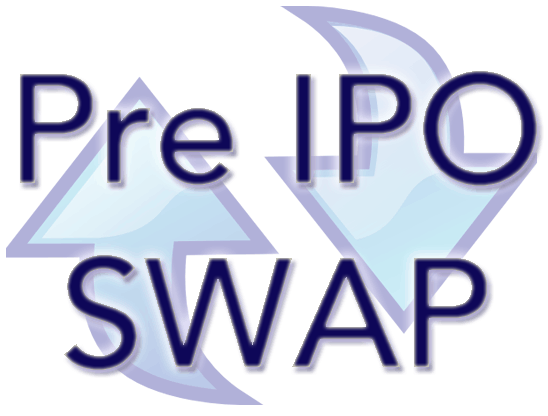From Crunchbase News:

When the Soviet Union splintered into separate nations in the early 1990s, it contained exactly zero hubs for venture-backed tech startups.
Three decades later, of course, the picture is quite different. Metro areas in multiple former Soviet countries now have a rich concentration of tech founders. Capital has followed.
But as one might expect, geopolitics have created some havoc in the fundraising dynamics. In particular, Russia, an up-and-coming market for U.S. and European VCs roughly a decade ago, is now persona non grata on the term sheet. This begs the question: Are other tech hubs in the region picking up the slack?
Search less. Close more.
Grow your revenue with all-in-one prospecting solutions powered by the leader in private-company data.
To get a general idea, we took a look at how former Soviet nations rank on the startup funding front using Crunchbase data. Below, we break down the funding by region, including the Baltic States, Eastern Europe, Central Asia, the Caucasus and Russia.
Baltic States
We’ll start with the Baltic nations of Estonia, Latvia and Lithuania. These are known as cold places climatewise but hot ones when it comes to startup funding.
Over the past three years, the three countries have pulled in at least $3.65 billion in known startup and growth-stage financing. This has gone to a small stable of unicorns alongside a number of earlier-stage upstarts.
Bolt, the Estonia-based ride-hailing and delivery app, tops the list for funding, with $2 billion in known investment to date. Next up is Vinted, an online marketplace for secondhand clothes based in Vilnius, Lithuania, that has bagged over $560 million to date.
We’re also seeing some up-and-comers raising recent rounds. Lithuania-based cybersecurity provider Nord Security and Estonia-based identity verification upstart Veriff both landed $100 million rounds this year.
Ukraine
Ukraine has a pretty active tech scene, mostly centered around Kyiv. Even in a time of war, it’s still putting out code and closing funding rounds, although a considerable portion of the country’s tech talent has either relocated to safer places or enlisted.
This isn’t a new development. Several prominent unicorns have Ukrainian roots, including Grammarly, which launched there 13 years ago. It’s currently headquartered in San Francisco, but maintains an office in Kyiv. GitLab, now also headquartered in San Francisco, is another. Co-founder Dmitriy Zaporozhets first started building the company from his house in Ukraine.
More recent Ukraine-based funding recipients include ethereum startup Aurora, which landed $12 million in a Series A, and AI-enabled face-swapping and content creation app Reface, which picked up $5.5 million.
Of course, Ukraine has bigger challenges in mind than scaling startups these days. That said, some financing has been raised since Russia’s February invasion commenced. For instance, Everlend Finance, a decentralized lending and borrowing aggregator based in Kyiv, pulled in $2.5 million in an August seed round.
Central Asia
Of the five Central Asian nations formerly part of the USSR, none are prominent startup hubs. However, Kazakhstan, Kyrgyzstan, Tajikistan, Turkmenistan and Uzbekistan do have funded ventures.
Per Crunchbase data, the Central Asian nations have collectively pulled in around $25 million in venture funding over the past three years. (It’s likely the actual number is higher, as we rely only on fundings that have been publicly disclosed or self-reported.)
The largest round went to Alif, a Tajikistan-based neobank that raised $8 million in equity and $50 million in debt financing from Jefferson Capital a year ago. Another was SuperFroot, a Kazakhstan-based food delivery app that has landed $5.3 million to date, including a $3.2 million Series A in January 2020.
Activity extends beyond what we see in funded company listings. For instance, Kazakhstan apparently has a pretty active startup scene, and even some local accelerators.
Minsk to Moldova
If you can make it in Minsk, you can make it anywhere, they say.
Actually they don’t say that, but that hasn’t deterred startups working to make it big from the Belarussian capital city. This includes Weappy, a game development studio that raised $1.4 million in 2021 and is known for its police adventure games. Another is RocketData, a provider of services for businesses to track and manage their online presence and reputation.
Broadly, however, Belarus and Moldova, two Eastern European nations that are former Soviet states, are not big centers for startup action.
Russia
Russia, meanwhile, isn’t seeing any Western venture capital investment of late. Most recently, this has been due to sanctions, but even before the Ukraine invasion investment had been trending lower.
That said, Russian startups and unicorns have still secured some big investments in recent quarters, generally with domestic funding sources. For instance, Moscow-based video-on-demand service ivi raised $250 million in a Series D round last year backed by Russia’s VTB Bank.
Illustration: Dom Guzman
SIGN UP